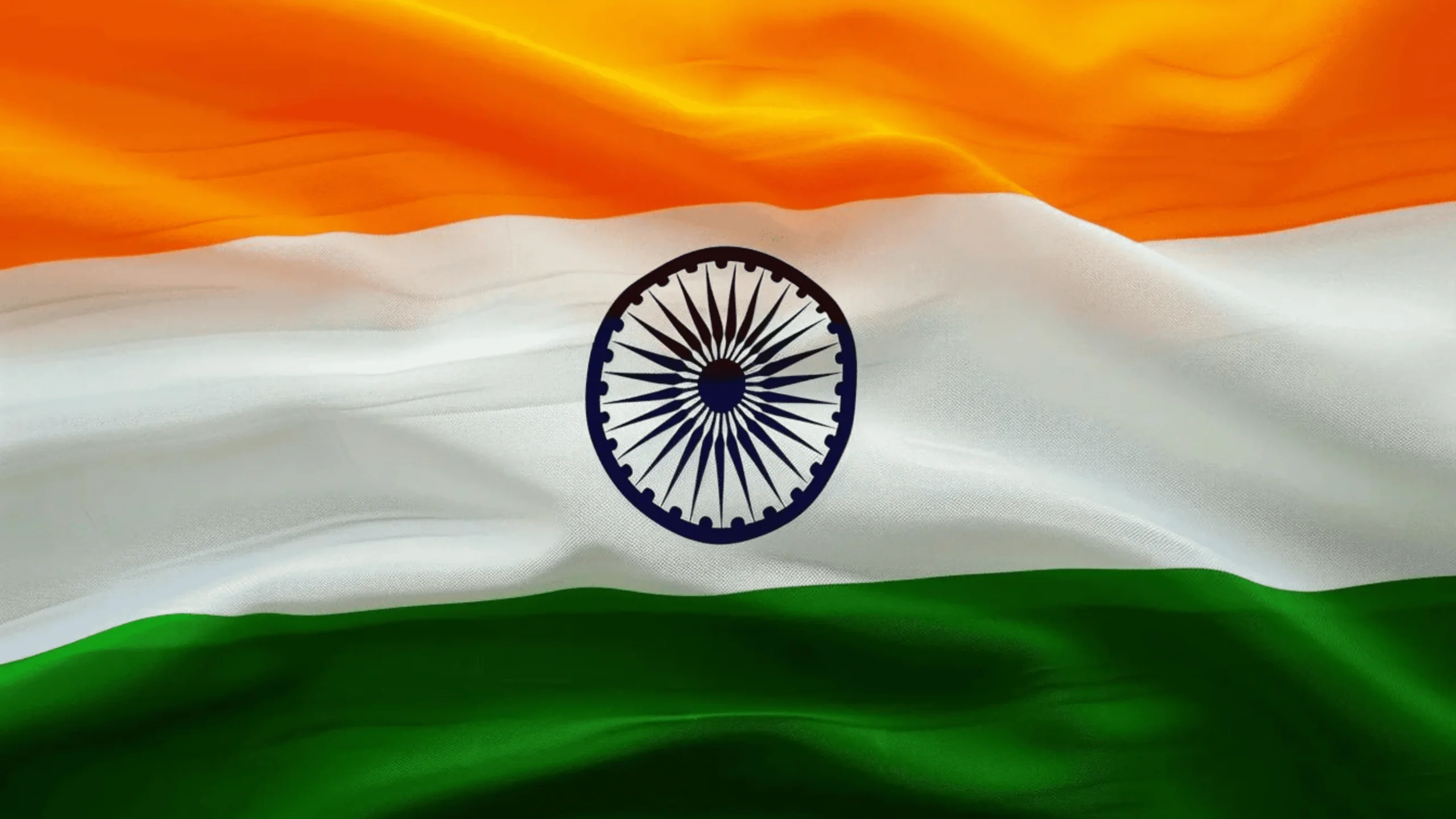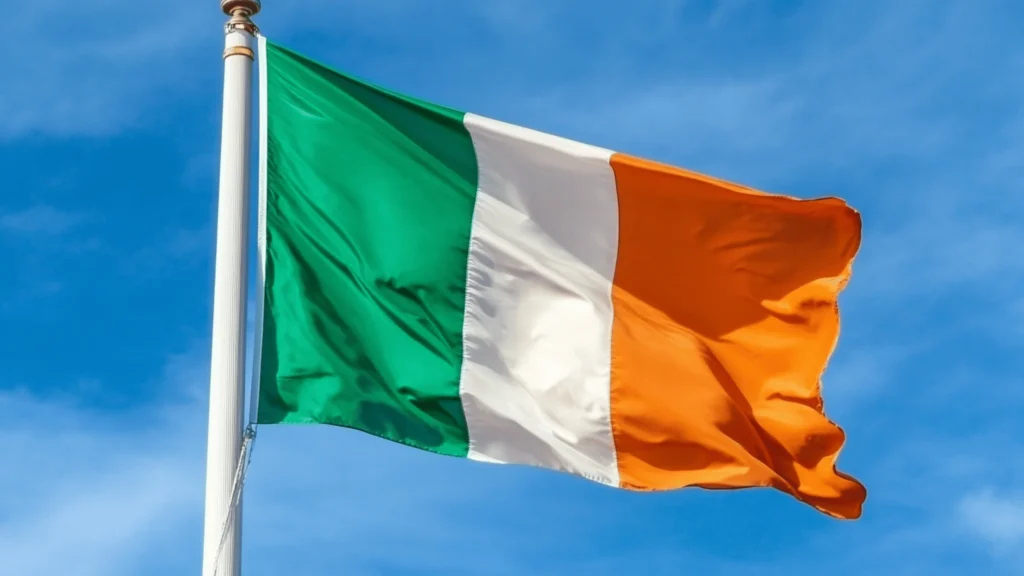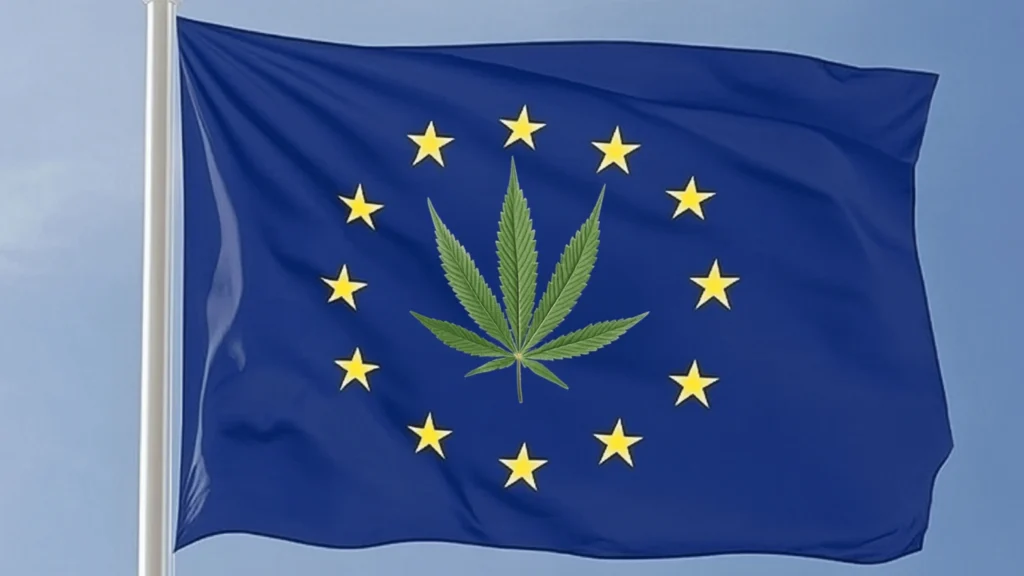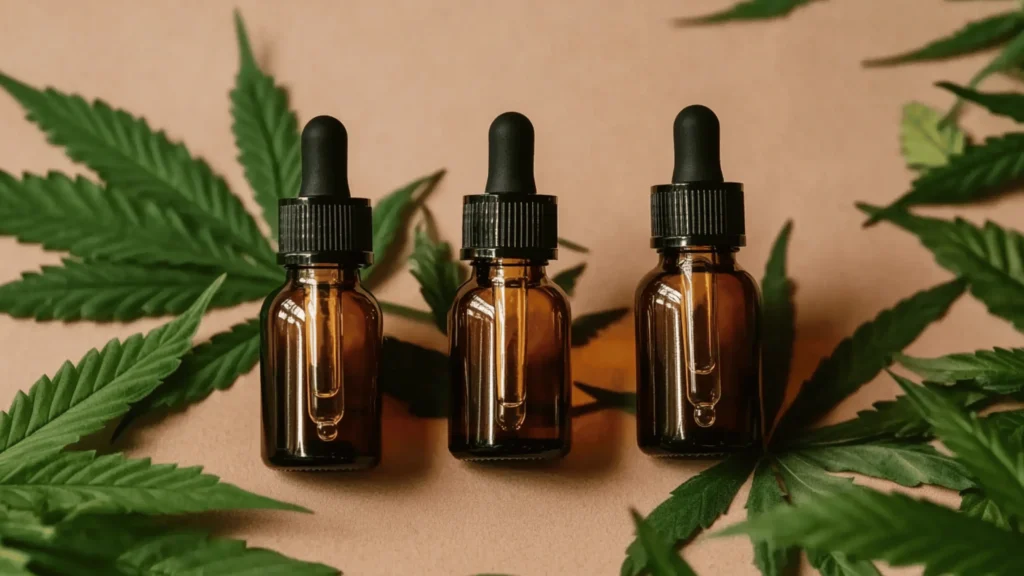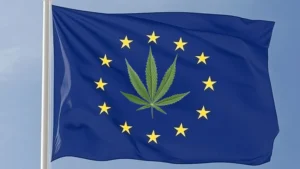Is CBD legal in India? This question is increasingly common as the popularity of CBD products in many parts of the world, including India, continues to grow. CBD is legal in India if it is extracted from hemp leaves and contains no more than 0.3% THC. Under these conditions, CBD is considered completely legal and can be sold. Derived from the hemp plant, CBD is widely known for its medicinal and therapeutic benefits. Unlike THC (tetrahydrocannabinol), which is derived from cannabis plants and is psychoactive, CBD does not induce a “high.”
Historically, CBD has been an integral part of Ayurvedic medicine in India, where it is referred to as “Vijaya”. Despite the rise in CBD’s popularity and its deep roots in traditional medicine, there remains significant confusion and misinformation about its legality. Contrary to common belief, CBD is indeed legal in India for use, sale, and possession. The legal framework governing CBD products and other hemp derivatives in India can be somewhat unclear, but CBD itself does not fall under the same restrictions as, for example, cannabis. So, if you’re an entrepreneur or an investor looking to explore the growing CBD market in India and CBD’s legal status – you’re in the exact right place.
The rise of CBD’s popularity in India
The awareness of CBD in India saw a significant growth during the controversy surrounding Rhea Chakraborty in 2020, who got involved in an alleged drug possession. This high-profile case somehow served as a motivation for public interest in CBD.
Google data from September 2020 reveals a big increase in searches for ‘CBD’ in India during this period. The months following the controversy marked some of the highest sales for the CBD industry in India. This increased interest encouraged narcotics officers to meet with other representatives to better understand the CBD industry and its products. Prior to this, there was little to no engagement from ministers, IAS officers, or other authorities, who generally viewed hemp products, including CBD, as entirely illegal and negative. This shift in perspective highlights the evolving legal and social landscape for CBD in India.
The legal framework for CBD products
Even with the coming of various CBD products in the market, consumers are sometimes still confused regarding CBD and its legal status in India. The leaves of the hemp plant are utilized for the extraction of CBD oil due to their rich cannabinoid content. CBD is not listed under any of the schedules of the 1961, 1971, or 1988 United Nations International Drug Control Conventions, to which India is a signatory. Pure CBD oil does not fall under the category of pharmaceutical products, as it is completely natural and does not contain any synthetic chemical components.
Understanding the legal status of CBD in India requires delving into the specifics. The Indian Council of Medical Research (ICMR) and the Drugs Controller General of India (DGCI) have maintained a very unclear attitude on CBD products. For example, there is a significant void in India regarding a proper regulatory framework and specific guidelines for CBD products. Let’s try to dive deeper into this.

Legality under NDPS act
According to the NDPS (Narcotic Drugs and Psychotropic Substances) Act of 1985, the seeds and leaves of the hemp plant are not classified as narcotics, thus excluding them from the act’s regulations. Consequently, CBD oil extracted from the leaves of hemp is also excluded from the NDPS Act.
The legal status of CBD and CBD products in India lies on their THC content. Both medicinal and recreational use of CBD is permitted, provided the products do not contain THC levels exceeding 0.3% concentration. This threshold was established by a Gazette notification in October 2001, which states that possession of THC exceeding 50 grams and/or a concentration above 0.3% in any formulation is illegal and subject to legal action under the NDPS Act. The act maintains a stringent attitude against THC and other intoxicating derivatives of the cannabis plant. Therefore, CBD oil with high THC content is only permissible for medicinal purposes with a valid prescription.
DCGI approvals
One of the main barriers to the acceptance of CBD products in India is the lack of approval from the Drugs Controller General of India (DCGI), which standardizes the manufacturing, sales, import, and distribution of these kinds of products in the country.
Currently, CBD products are licensed by the AYUSH Ministry under the Drugs and Cosmetics Act of 1940. According to industry experts, broader acceptance of CBD products will only be achieved if medical doctors (MDs) begin prescribing them. However, doctors are reluctant to recommend CBD products that are not approved by the DCGI, which requires more strict and expensive clinical trials.
This inflexible regulatory framework significantly delays research and development (R&D) in the Indian CBD market. As pointed out by industry leaders, India is generally not an innovator in new drug development, often producing copycat products instead. Moreover, many Indian companies lack the maturity and financial resources to invest in the necessary research, especially when an alternative phytopharmaceutical pathway already exists.
CBD oil (Vijaya) and the Ministry of AYUSH
There are specific guidelines under the regulatory framework of the Ministry of AYUSH regarding the legality of CBD oil in India. In the Rajya Sabha, questions were raised about the use of CBD for medicinal purposes in Ayurveda, Siddha, and Unani medicine. The Minister of AYUSH, Shri Sarbananda Sonowal, clarified the regulations surrounding this issue. While Bhanga (cannabis plant, excluding seeds) is a controlled substance, CBD itself is not currently recognized in these traditional Indian medical systems. This implies that any medications containing CBD would not be classified as Ayurvedic, Siddha, or Unani medicine. Despite this, products containing CBD must adhere to strict labeling requirements. The absence of CBD in the official recognition of traditional medicine systems poses a challenge for integrating CBD-based treatments within these frameworks.
This regulatory attitude impacts the market potential and acceptance of CBD products in India, emphasizing the need for clear guidelines and regulatory recognition to fully explore the therapeutic benefits of CBD.
Labelling requirements
CBD labeling requirements in India are strict and designed to ensure consumer safety and regulatory compliance. Products containing CBD must adhere to the guidelines set forth by the Ministry of AYUSH and the Drugs and Cosmetics Rules, 1945. These regulations mandate that all CBD products include clear and precise labeling indicating the concentration of CBD and THC, if present, as well as any other cannabinoids. Additionally, products containing Schedule E substances like Bhanga (THC) must display a warning label that emphasizes the need for medical supervision during use. This is in accordance with Rule 161(2) of the Drugs and Cosmetics Rules, 1945.
Furthermore, the Central Consumer Protection Authority (CCPA) has advised that Ayurvedic, Siddha, and Unani drugs containing Schedule E(1) substances can only be sold with a valid prescription from a registered practitioner. This advisory extends to e-commerce platforms, ensuring that online sales comply with these requirements. Proper labeling is crucial for informing consumers about the product’s contents and ensuring safe and responsible usage, thus ensuring trust and transparency in the growing CBD market in India.
A new era of CBD legality in India
The legal status of CBD in India has been evolving and is shaped by diverse perspectives from legal, medical, and societal fields, making the regulatory environment somewhat complex.
Historically, the sale of any cannabis products was prohibited under the NDPS Act of 1985. However, recent modifications to these rules have separated CBD from cannabis due to its non-psychoactive nature. The evolving legal landscape also means a growing acceptance of CBD’s medicinal potential while maintaining strict controls to ensure public safety.
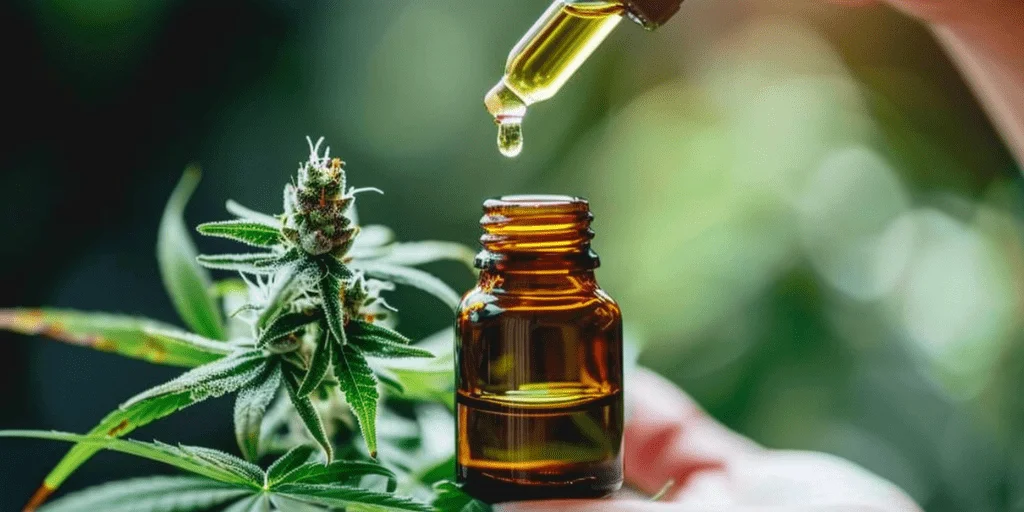
Interpreting the statutory framework
The Indian government’s decision to remove CBD from the list of compounds prohibited by the NDPS Act in 2020 marked a significant progressive move in the country’s approach to CBD products’ regulation. As already mentioned, this action differentiated CBD from tetrahydrocannabinol (THC), the psychoactive ingredient in marijuana. By making this distinction, the government has accepted the medicinal and therapeutic potential of CBD, allowing for its consumption and sale as long as it is derived from hemp containing less than 0.3% THC.
The legal status of CBD in India
To conclude, CBD extracted from hemp is licensed under the AYUSH ministry and is legal in India. The use of CBD oil derived from hemp plant leaves is allowed for wellness and medicinal purposes in India. The government ensures that the use of CBD oil in India is within specific parameters to promote safe and responsible consumption.
Cannabis leaf extracts, classified under Ayurvedic medicines, are legal for use in traditional Ayurvedic practices, reflecting the historical and cultural significance of cannabis in traditional Indian medicine. Cannavedic, a leader of CBD manufacturing in India, holds an AYUSH license provided by the state government to manufacture and sell its products, ensuring compliance with regulatory standards for traditional Ayurvedic practices.
2025 update
As of 2025, there have been no significant changes to the legal status of CBD in India. CBD products derived from hemp leaves containing less than 0.3% THC remain legal for use.
CBD market in India
One of the main advantages of the CBD market in India is the large and growing population. With over 1.4 billion people in 2025, many of whom are interested in natural and alternative health products, India presents a huge potential market for CBD products. This demographic trend indicates a substantial demand for wellness and medicinal products derived from CBD, making the market highly lucrative for entrepreneurs and investors.
Another significant advantage of the CBD market in India is the low production costs. The country boasts a well-established pharmaceutical industry and a large quantity of skilled workers, facilitating the efficient production of CBD products. Additionally, India’s favorable climate in many regions is ideal for growing hemp, the primary source of CBD, further reducing production costs.
However, there are some challenges to the CBD market in India. A major challenge is the lack of clear regulations surrounding the production and sale of CBD products. While CBD products are legal in India, the absence of explicit government guidelines on their production and sale creates a complex legal landscape for companies. Another challenge is the persistent stigma surrounding cannabis in India, despite the fact that CBD comes from hemp. Negative perceptions of cannabis persist in many parts of the country, complicating marketing efforts and limiting the potential customer base.
Import and export restrictions
India strictly regulates the import and export of hemp and its derivatives, including CBD oil. It is illegal to import or export CBD oil without the necessary permits and licenses from the relevant authorities. These regulations are in place to control the movement of controlled substances and ensure that all CBD products entering or leaving the country comply with legal standards. Violations of these regulations can lead to severe legal consequences, including hefty fines and imprisonment.
The strict control over import and export activities highlights the importance of compliance for businesses operating in the CBD market. CBD business representatives must navigate this regulatory landscape carefully to avoid legal difficulties and ensure their operations remain within the bounds of the law.
Long-term agenda
Along with the acceptance of CBD, younger companies in the Indian market are now starting to explore the potential for recreational cannabis. These organizations are advocating for the eventual legalization of cannabis for recreational use in India. According to industry experts, the legalization of recreational cannabis is unavoidable, primarily due to the global trend towards legalization, especially in the United States.
Countries worldwide are recognizing the economic benefits of legalizing cannabis, and there is substantial revenue to be made from this industry. The evolving landscape of cannabis regulation in India highlights the dynamic interaction between various industries and the broader economic implications of legalizing cannabis.
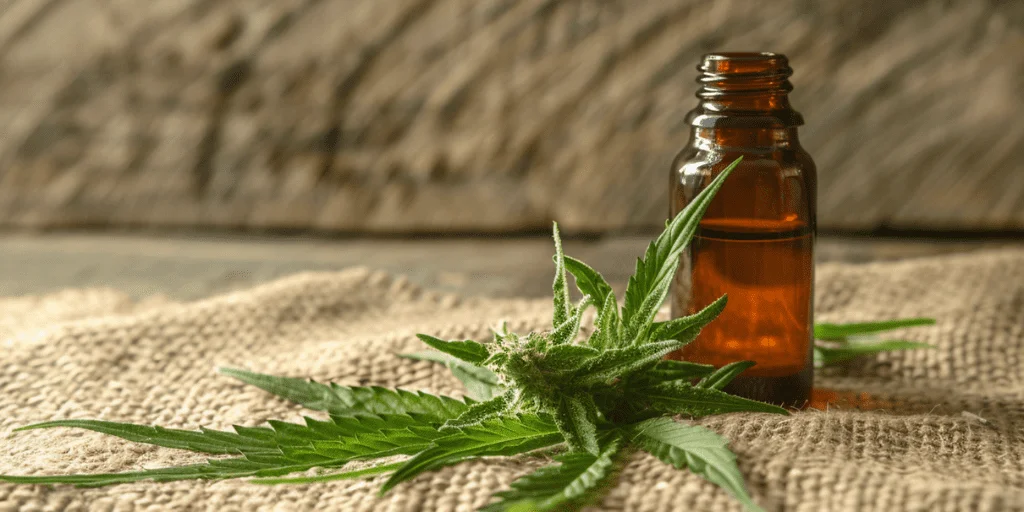
Conclusion
The legalization of CBD in India marks a significant step towards promoting various health-enhancing practices. As research into CBD continues to grow, its potential to treat a wide range of health issues, for example anxiety and stress, becomes more recognized. The wellness community is expanding due to the increasing acceptance of CBD, but this trend also highlights the importance of responsible usage. CBD in India demonstrates how science, regulations, and the integration of traditional and modern approaches can collaborate to enhance health in a modern world.
Additionally, brands in India like The Trost are leading the way by offering premium CBD products and providing free consultations with physicians. This service ensures that consumers can use CBD safely and effectively, guided by professional medical advice. The collaboration between healthcare providers and CBD product manufacturers shows a commitment to quality and safety. As the market for CBD continues to grow, such initiatives play a crucial role in educating the public and ensuring the responsible use of CBD products in India.
Featured Articles

Blog Home
No Content
